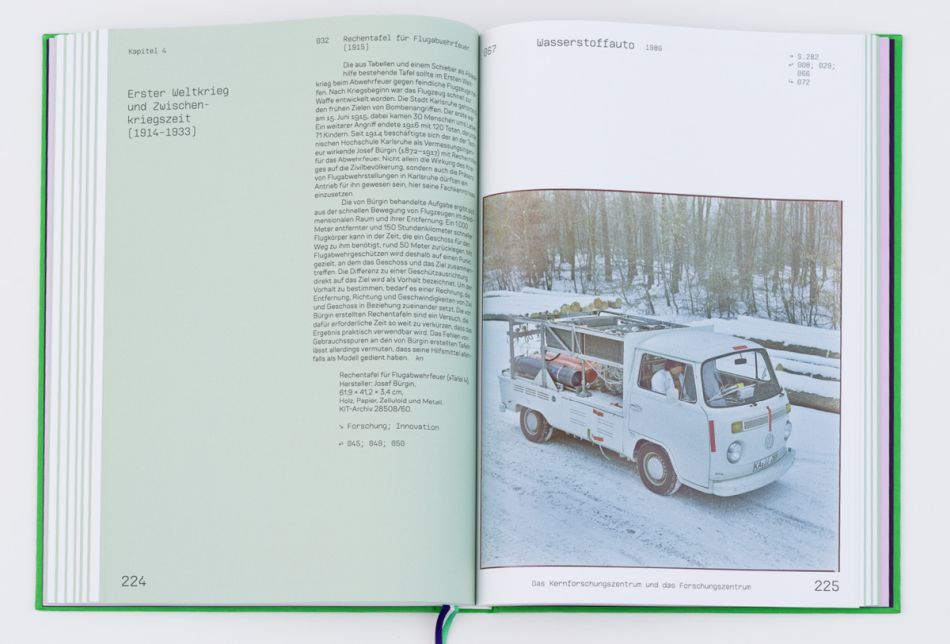200 Years of Pioneering Spirit in Pictures and Stories
From the founding charter of the Polytechnical College in 1825 to historical scientific instruments such as Otto Lehmann’s polarizing microscope and the “Bulli mit Blubb” (Hydrogen Bus), the Karlsruhe Institute of Technology (KIT) has published a comprehensive illustrated volume celebrating its 200th anniversary. The catalog for the exhibition “200 Years – 100 Objects. Parts of the Whole. Selected Objects from the History of KIT” is now available in bookstores and documents the exhibition of the same name at the ZKM | Center for Art and Media Karlsruhe and online.
The hardcover volume comprises around 350 pages and presents all 100 exhibits in the show with accompanying half-page texts. The objects come from the KIT archives and an internal Call for Objects, which invited employees to contribute their own piece of KIT history to the exhibition. They provide insights into research, teaching, innovation, everyday life, and cultural life at KIT and its predecessor institutions.
A Lasting Contribution to the Culture of Remembrance
The catalog offers various ways to explore the exhibition: interested readers can browse through it linearly, explore it thematically, or focus on image series and 3D visualizations. “With the catalog, we wanted to create a sustainable format that would have an impact beyond the duration of the exhibition,” explain Andrea Stengel and Klaus Nippert, who curated the exhibition. “It is a contribution to the culture of remembrance and the visibility of history of science.”
The catalog is available in bookstores and online for €54. The anniversary exhibition runs until October 19, 2025, at the ZKM | Center for Art and Media Karlsruhe. It will also be accessible online until 2030.
iha, September 11, 2025

